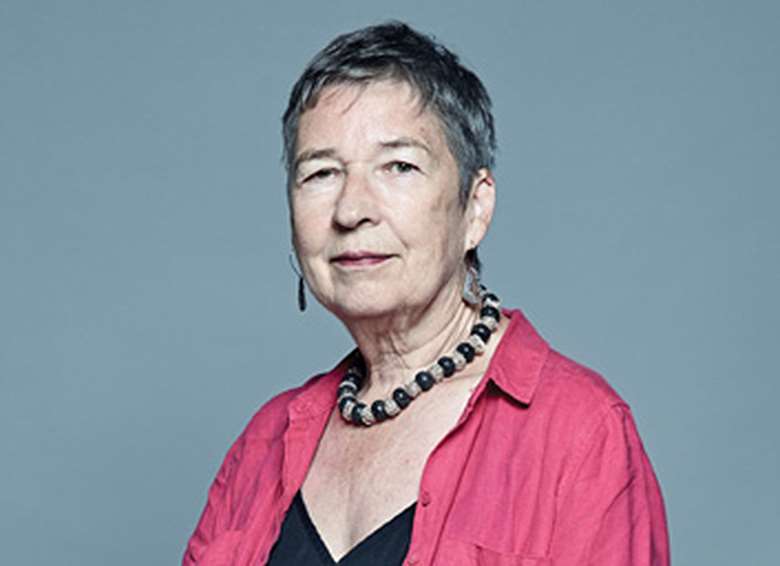Children's leaders criticise inquiry claims over council placement practices
Dan Parton
Tuesday, September 17, 2019
Children's services leaders have hit back at claims by a parliamentary inquiry that councils are acting as "recruiting sergeants" for paedophiles and criminal gangs by placing children in care homes out of their local area.

The No Place Like Home report by the all-party parliamentary group (APPG) for runaway and missing children and adults, suggests that thousands of children are being put at risk by being placed in children's residential care settings up to 100 miles from where they live.
Such practice isolates children from friends, family and social workers and, the report claims, makes councils an unwitting "recruiting sergeant" for those trying to exploit them sexually and criminally.
However, Rachel Dickinson, president of the Association of Directors of Children's Services (ADCS), described the suggestions in the report as "wholly inappropriate", adding that she was in "direct dialogue with the report authors".
More than 70 per cent of the 41 police forces that responded to the inquiry said that placing children out of area increased their risk of exploitation.
Despite this, 64 per cent of all children living in children's homes now live out of area, up from 46 per cent in 2012.
In addition, the number of children reported missing from out-of-area placements has more than doubled from 990 in 2015 to 1,990 in 2018. Over the same period, there has been a 31 per cent rise in missing incidents of children placed within their local area, according to figures obtained by Ann Coffey, MP for Stockport and chair of the APPG.
The inquiry also found that half of all missing episodes - 34,060 out of 70,250 - are from children's homes and semi-independent accommodation.
Coffey said the situation has reached "crisis point".
"Children are being systematically failed and placed in grave danger by the very professionals who are there to protect them," she said.
"By placing so many children out of area, councils are complicit in adding to the trauma of already neglected and abused children. It must stop."
The report recommends that the government develops an emergency plan to slash the numbers of out-of-area placements, recognising that they do not keep children safe. The plan would help local authorities plan sufficient numbers of local placements, which could involve increasing direct provision.
The report also highlights a 70 per cent increase over the last decade in the number of looked-after children aged 16-plus placed in unregulated semi-independent accommodation, which Coffey describes as a "shady twilight world".
More than 5,000 children now live in such settings and 80 per cent of the police forces that gave evidence expressed concern about the increasing numbers living in unregulated homes. Unlike children's homes they are not regulated or inspected, a situation that needs to be addressed, Coffey said.
The inquiry concluded that out-of-area placements are not made with the best interests of the child in mind but to suit the needs of the "market".
It calls on the Department for Education and the Home Office to develop a cross-departmental strategy on tackling child criminal exploitation and county lines specifically focusing on the risks to looked-after children placed out of area.
It also recommends that any decision to place a child out of area should be supported by evidence to demonstrate that the decision is for the child's safety, and that children's services should be required to demonstrate that children and young people have been consulted in advance.
Finally, local authorities should be required to publish yearly sufficiency reports stipulating the number of in- and out-of-area placements and cost of provision.
Responding to the report, the ADCS said that finding the right placement for children in care and keeping them safe is a "priority" for all local authorities.
"Whilst placing children close to their community, family and friends is preferable there are good reasons why a child might be placed further away including where there are concerns about their safety or their needs can't be met locally," Dickinson said.
"The child's voice is critical but choosing the right placement can, at times, conflict with their wishes. As Sir Martin Narey recognises in his review of residential care ‘the right placement for a child is more important than location'."
She also pointed to a 24 per cent increase in the number of children in care over the past decade, a shortage of foster carers and placements in residential children's homes, as well as a mismatch between the location of these placements and need.
"That local authority budgets have been halved since 2010 but need has not cannot be overlooked either as this is impacting on our ability to develop suitable, local options for children and young people," she said.
"ADCS strongly cautions against the view that all young people in out-of-area placements or unregulated provision are badly placed or left without support, indeed there are some excellent providers of services and the report does not recognise the important work they do."
Mark Russell, chief executive of The Children's Society, added that this should be a "wake-up call" for urgent action at national and local level.
He said: "No looked-after child should be placed simply because that is where a bed is free, instead of that is where the child is most likely to receive the care, support and sense of belonging they deserve.
"We are calling on the government to put in place an action plan and give councils more funding to ensure that there is a sufficient number of good quality, regulated and inspected care placements where children need them. Only then can we stop this epidemic of children being sent away, left feeling isolated and exposed to high risk."




